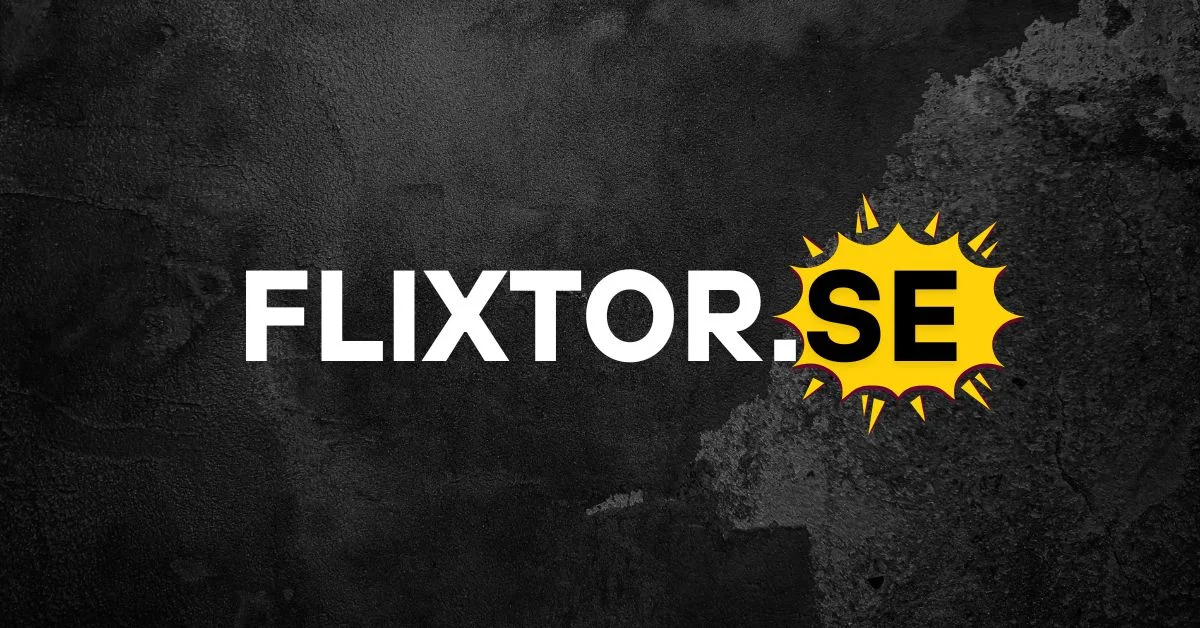The digital streaming universe has grown into a global behemoth, where convenience, instant access, and viewer choice dominate. Amidst major subscription platforms like Netflix, Disney+, and Amazon Prime, sites like Flixtor.se occupy a different—often controversial—space in the online ecosystem. This article aims to demystify what Flixtor.se is, how it functions, and the broader implications for users, creators, and regulators.
In the style of a detailed New York Times analysis, we’ll examine the roots of Flixtor, its rise in popularity, its associated legal gray zones, and what this tells us about digital consumption habits today.
What Is Flixtor.se?
Flixtor.se is a streaming website that offers access to movies and TV shows without requiring a paid subscription. It is not officially affiliated with any content producers, distributors, or mainstream platforms. The service often hosts or indexes links to video content that would otherwise be available only through paid services.
While the interface mimics that of legal streaming sites—offering user-friendly browsing, search filters, and high-definition content—the site’s legality is murky. Flixtor.se does not appear to own the rights to most of the content it streams, which raises significant intellectual property concerns.
READ MORE: What Is Iganiny? A Deep Dive into One of 2025’s Most Talked-About Platforms
Why Is It Popular?
Several factors contribute to the enduring popularity of Flixtor.se:
1. Cost-Free Access
With streaming services splintering into dozens of monthly subscriptions, Flixtor’s zero-cost model appeals to price-sensitive viewers.
2. Content Aggregation
The platform consolidates shows and movies from across multiple studios and streaming platforms into one place—eliminating the need for switching apps.
3. Minimal Ads
Compared to other streaming alternatives in the piracy-adjacent space, Flixtor offers a surprisingly clean interface with limited pop-ups or redirections.
4. No Mandatory Account Creation
Many users appreciate not needing to create an account or share personal data.
The Legal Perspective: Is Flixtor.se Legal?
From a legal standpoint, the situation is complex. Streaming copyrighted content without permission—whether by hosting or linking—is considered a violation of intellectual property laws in many jurisdictions.
- In the U.S.: The Copyright Act protects the exclusive rights of creators. Hosting or distributing unlicensed content can lead to civil or criminal penalties.
- In the EU: The Digital Services Act reinforces obligations for platforms to moderate illegal content. Users who repeatedly access infringing platforms may also be tracked or warned.
- Globally: Enforcement varies, but digital copyright watchdogs are increasingly aggressive in pursuing such platforms.
Flixtor.se, like other sites of its kind, typically does not host content directly but rather indexes links found across the web. This technical detail creates legal ambiguity—but courts have increasingly held such services liable.
Safety Concerns for Users
Beyond legality, using sites like Flixtor.se raises cybersecurity issues:
- Malware Risks: Users may be exposed to harmful scripts embedded in ads or links.
- Data Harvesting: Lack of HTTPS encryption or hidden trackers may result in unauthorized data collection.
- ISP Monitoring: Internet providers can log access to streaming sites and throttle connections or report patterns.
Using a VPN or ad-blockers mitigates some risk, but not all. Simply put, users often underestimate the exposure that comes with free streaming.
The Rise and Fall—and Rise Again—of Flixtor
Flixtor is not a single domain but a network of mirror and proxy sites. When one domain is taken down (e.g., Flixtor.to, Flixtor.is), others rapidly replace it. This whack-a-mole strategy keeps the platform resilient but inconsistent.
What’s unique about Flixtor.se is its ongoing adaptation. New versions often:
- Improve design to appear more legitimate
- Shift hosting to more obscure or deregulated jurisdictions
- Use decentralized technologies (e.g., IPFS) to resist takedowns
What This Reflects About Streaming Culture
The popularity of platforms like Flixtor.se points to a larger issue in the entertainment industry: accessibility. As more services wall off content behind subscriptions, many users turn to alternatives—not out of malice, but frustration.
1. Too Many Subscriptions
The average user now juggles 4–6 subscriptions. For many, the cost is unsustainable.
2. Geographical Restrictions
Licensing deals mean some content is unavailable in certain countries, pushing users toward unlicensed platforms.
3. Fragmented Franchises
Popular content spread across platforms frustrates viewers who just want centralized access.
Ethical Considerations: What About the Creators?
While streaming platforms rake in billions, individual creators and independent filmmakers often rely on licensing deals for income. When viewers bypass these systems, revenue loss becomes real—especially for smaller studios.
Ethical viewers may ask:
- Am I supporting the content I enjoy?
- Is my convenience worth the creator’s lost revenue?
Flixtor’s model highlights the tension between consumer accessibility and creator compensation.
Alternatives to Consider
For users seeking affordable, legal access to content, there are alternatives:
- Ad-Supported Platforms: Tubi, Pluto TV, and Freevee offer legal streaming with ads.
- Public Libraries: Many local libraries offer free streaming access through services like Kanopy and Hoopla.
- Bundled Services: Telecom and credit card providers sometimes bundle streaming subscriptions.
Exploring legal options helps balance access and ethics.
Regulatory Trends to Watch
In 2025, governments and tech firms are ramping up digital enforcement:
- Blockchain Tracking: Used to trace piracy traffic and payments
- ISP Partnerships: Collaborations to detect suspicious traffic in real time
- AI-Based Content Scanning: Algorithms to detect unlicensed uploads
Flixtor’s longevity may depend on how agile it is in outmaneuvering these increasingly sophisticated deterrents.
Final Thoughts: Navigating Access and Accountability
Flixtor.se is part of a larger story about digital democratization, access inequality, and the challenges of monetizing creativity in a fragmented media landscape. Its continued relevance points to real consumer needs not fully addressed by mainstream services.
But as streaming platforms evolve and laws become more enforceable, both users and creators must make informed choices. Watching a film shouldn’t come with legal or ethical uncertainty—and yet, for many, it still does.
Frequently Asked Questions
1. Is using Flixtor.se illegal? Accessing or streaming copyrighted content without proper licensing may violate local laws, even if the site only hosts links.
2. Can Flixtor.se give my device a virus? While the site may not directly infect devices, unregulated ads or scripts pose a real cybersecurity risk.
3. Why do sites like Flixtor.se keep reappearing? They often use mirror domains and decentralized hosting to evade takedowns and legal actions.
4. Are there any safe, legal alternatives to Flixtor? Yes. Free, ad-supported streaming services like Pluto TV and Tubi provide legal options without subscriptions.
5. Will I get in trouble for using Flixtor.se? While rare, users in some countries have received warnings or fines. VPNs offer anonymity but don’t ensure legality.









